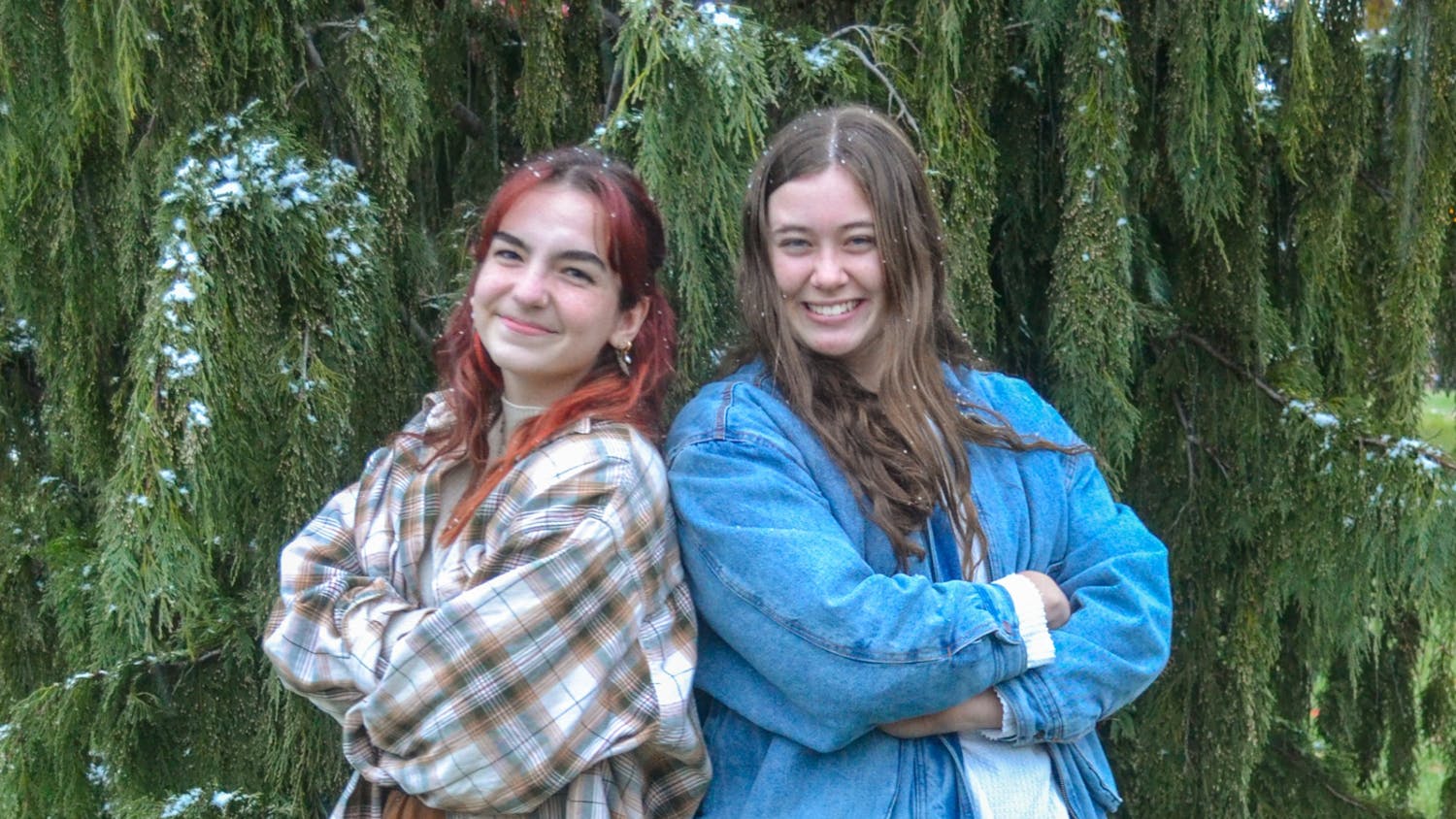Hanson Reed | Echo
Grass is generally greener in areas with more rainfall. More rainfall could imply more cloud cover. Cloudy weather can be a key factor in certain types of depression.
What I'm saying is that things aren't always as they first appear.In the weeks and months ahead, you will hear the term "intentional community" more times than will seem possible. If the concept has not been fully explained to you, rest assured that it will be. In fact, why don't you go ask someone-right now. I'll wait.
Curiosity satisfied? Great. Now prepare to hear that same speech ad infinitum (or at the very least, until you graduate). In fact, it won't be long until you are the one giving it. There is a very good reason for this. It isn't exactly a secret that one of the biggest things we have going for us at Taylor is our sense of community, and it makes sense that people like to talk about it. The life you will develop with those on your wing or floor is the true manifestation of what we mean when we say "intentional community."The same can be said for relationships within other defined groups on campus. But here is the cold truth: Outside of these pre-defined groups, the students of Taylor, myself included, are not living up to the ideal we claim to value. In fact, it often seems we aren't even trying
I am addressing this article to the freshman class with a very specific purpose in mind. I hope to help you see how the reality of Taylor differs from the idealized picture we tend to paint, and do it as soon as possible. Knowledge is power. The earlier you are made aware, the more power you have to avoid falling into the same bad habits as those who have come before you. If you can manage that, you will not only be a positive influence on the upperclassmen, but you will serve as an example for all those who will come after you.
The issue is not a lack of community. The grass really is quite green. The issue is how that sense of community is applied and distributed. Before arriving on campus freshmen year, I received a magazine with all kinds of articles about living at Taylor. Perhaps you did too. Perhaps you found, as I did, a map of the Dining Commons, complete with labels indicating which tables were occupied by which dorms. I remember feeling this was a bit strange, but didn't give it much thought. I never imagined how religiously people would stick to their "assigned" tables, especially after so much talk about intentional community. There are some hodgepodge tables, but sit down with people you don't know from a different dorm, and you tend to get looked at like a leper (mild exaggeration). It isn't that the people aren't friendly. It's that you are an outsider.
The truth is that if one of them sat down at your table, you would look the same way at them.
I have a problem with this-a big one. I like talking to people I don't know. I like sitting down with a group of strangers and having a good time. For some reason, we have created an environment where this is not viewed as acceptable. Every day, I see a large number of people who don't even look familiar. The same is true for students who have been here longer than me. How can we have community without even recognizing each other? This isn't a big campus. If there was even a modest increase in general community (as opposed to community within a wing or floor, what I will call "specific community"), then pretty soon there wouldn't be any real strangers, or at least far fewer.
I use the Dining Commons as my example because it serves as an excellent representation of campus as a whole, but the attitude I have described is not unique to it. The same is true with chapel seating and most large-scale activities on campus. But there is one big exception: the annual freshman Hoedown. This event happens before you freshmen have begun to view yourselves as part of any particular group, and I still remember it as some of the most fun I have had at Taylor. Yet it doesn't take long for the separation to begin, and you won't even realize it at first.
This is why I feel it is so important to inform you-not just to warn you, but to encourage you. There is no reason that you must conform to the precedents laid down by your older classmates. This is your home now. Taylor tends to be a confederation of intentional communities, and not always a unit of one intentional community. I don't think this is what anyone intended, and I don't think this is what anyone wants, but it is the world you are entering.
So change it.
You have a golden opportunity as you enter college. Everything I said before about feeling out of place at the wrong table doesn't apply to you yet. You don't know anyone, and this is your biggest asset. Upperclassmen like myself want to meet and talk with freshmen. I understand that it is easiest to get to know those on your floor/wing/team first, and to sit with them at every meal, but I issue you a challenge: Pick one meal a day to sit at a table with new people. The cycle of self-segregation is perpetuated because freshmen do not realize it is happening, at least not until their social circles have begun to solidify. Once this has happened, breaking the mold becomes very difficult.
I don't mean to discourage you from bonding with your floor/wing/team. These relationships are incredibly important. But remember that as an incoming class, you are unique from everyone else at Taylor. Do not settle for what Taylor is. Make it what it should be.
All it takes is breakfast with a stranger.
Editor's Note: Erin (Guarneri '13) McGaughey responded to Reed's arguments in a post published September 8.




